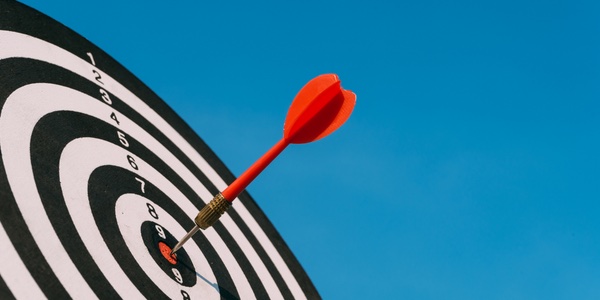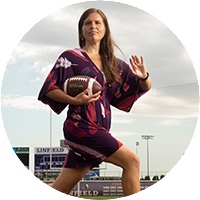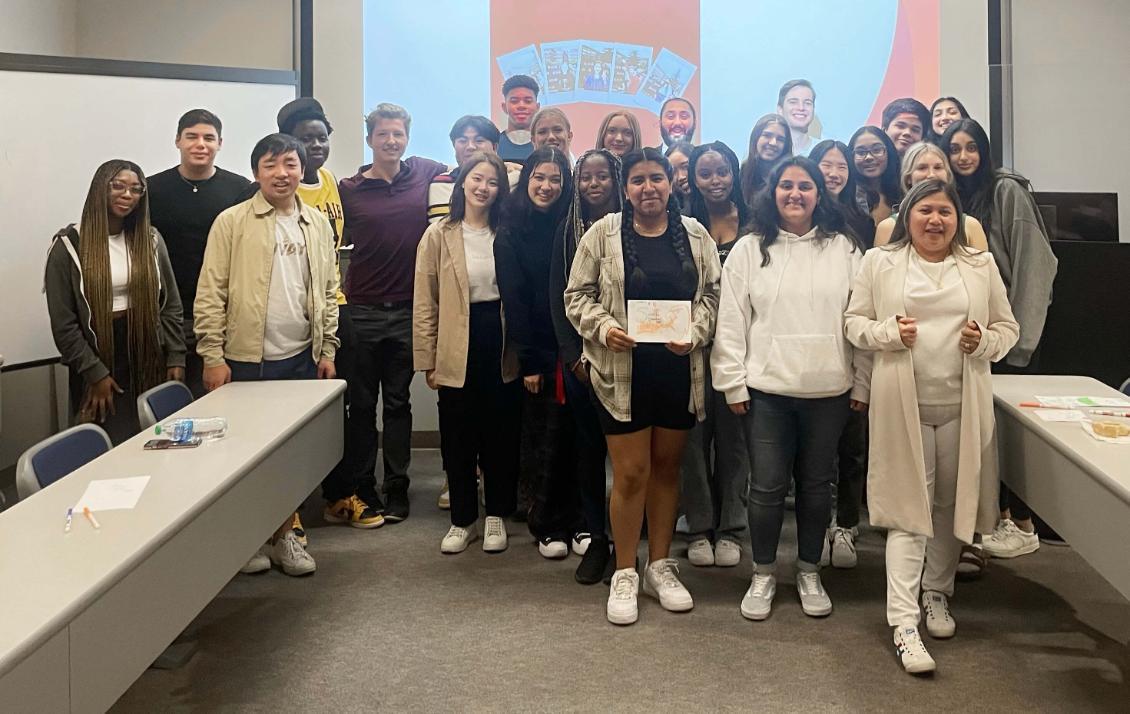
Targeting
Is the tech brand talking to the appropriate audience?

Enigma
Explaining a complex product or service in an incredibly short span of time
Tuesday, February 13, 2024
5:00 to 6:30 p.m.
Oberto Commons, Sinegal Center
Seattle University
At a hefty reported cost of $7 million for a prime 30-second spot, the return on investment (ROI) of a Super Bowl ad has always been a hotly debated topic among marketers. This hasn’t deterred big and emerging tech brands, however, which are increasingly making up a good portion of the ad lineup.
Why the Super Bowl? The annual event is viewed as the ultimate consumer outreach platform. Viewership figures are unparalleled and, in an age where advertising is seen as obtrusive, the audience actually looks forward to the ads. For tech brands looking to ramp up awareness and consumer adoption of their product/service, the Super Bowl may just be a worthwhile investment.
For the past decade, the Albers School of Business and Economics’ Marketing department chair Mathew Isaac has been rating Super Bowl ads using the ADPLAN framework devised by professors at Northwestern University’s Kellogg School of Management. This year, he, Assistant Marketing Professor Jennifer Hong, MBA Sport and Entertainment Management Assistant Professor Natalie Welch, and Assistant Marketing Professor Katie Quinn will turn their analytical eyes on ads from tech brands. Which ones work? Which ones need more work? Which ones cut through?
In collaboration with the Seattle University chapter of the American Marketing Association (AMA), the 2024 Tech Bowl is open to anyone who is interested in advertising, marketing, sport marketing, and Super Bowl commercials. For students thinking of pursuing a degree in marketing, the event is a sneak peek at what Albers’ marketing program has to offer.
Sign up to join Professors Isaac, Hong, Welch, and Quinn as they dissect this year’s crop of tech ads and share insights on effective ad creation:
The ADPLAN framework is a proprietary model created by professors at Northwestern University’s Kellogg School of Management. It is used to evaluate ads at their annual Super Bowl Ad Review.
Capture attention
Be distinctive
Communicate the brand's positioning
Achieve strong linkage between the content in the commercial and the brand name
Result in positive amplification after the ad airs
Fit the net equity that has been created by prior brand campaigns
Methodology by Northwestern University's Kellogg School of Management
Since Tech Bowl focuses on tech ads specifically, the panel expanded its grading criteria to encompass four challenges it feels are unique to tech brands:

Is the tech brand talking to the appropriate audience?

Explaining a complex product or service in an incredibly short span of time

Data breaches, dissemination of false information, and misuse of consumer data has led to distrust of tech companies

From the dot-com boom/bust to today, the sector's history has been roiled by volatility
 Mathew Isaac, PhD
Mathew Isaac, PhDMathew Isaac, PhD is the chair of the Albers Marketing department. His research focuses primarily on consumer judgment and decision-making, examining how contextual and motivational factors influence product evaluations and purchase intentions. He obtained his PhD in marketing at the Kellogg School of Management and his MBA, with concentrations in finance and strategic management, from the University of Chicago’s Booth School of Business.
 Jennifer Hong, PhD
Jennifer Hong, PhDJennifer Hong, PhD, has been an Assistant Professor of Marketing at Albers since 2019. Prior to earning her PhD in marketing from the Leonard N. Stern School of Business, she completed her master’s in Psychology at New York University and her BA in Economics at the University of Chicago. Hong teaches an introduction to marketing and marketing analytics to Albers students. Her research examines the potential impact of various marketing strategies such as customization, product configuration, and global segmentation on how consumers judge product bundles as well as each bundled component.
 Natalie Welch, PhD
Natalie Welch, PhDNatalie M. Welch, PhD, joined Seattle University and the MBA in Sport and Entertainment program in the fall of 2022. She is an enrolled member of the Eastern Band of Cherokee Indians and grew up in Cherokee, North Carolina. She is an alumnus of the University of Tennessee and the University of Central Florida. Natalie has over five years of professional experience working with Nike and ad agency Wieden+Kennedy. Natalie is passionate about advocating for indigenous athletes and equity across all of sport.
 Katie Quinn, PhD
Katie Quinn, PhDKatie Quinn, PhD, obtained her PhD in marketing from the Foster School of Business at the University of Washington. At Albers, she teaches marketing research, sales management, and brand strategy to undergraduate and MBA students. Her research focuses primarily on how consumers perceive brand attributes and interact with brands in various contexts. Prior to entering academia, Quinn worked as a financial analyst for Epic Systems and, during her graduate studies, worked as a PhD brand consultant for DNA Seattle.

The Seattle University AMA Chapter has been organizing Tech Bowl (formerly the Super Bowl Ad Review) since its inception in 2013. SU AMA has been committed to providing opportunities for students to establish networking connections, delve into developmental career workshops, and hone leadership skills.
With over 50 members, the club strives to help students make the most out of their university experience. They have hosted guest speakers from, and arrange headquarter tours to, many of Seattle’s largest organizations including Microsoft, Starbucks, Boeing, Nordstrom, and the Gates Foundation. AMA aims to make marketing a force to unite students in achieving their goals.
The American Marketing Association is a professional association for marketing professionals with 38,000 members, 70 professional chapters and 250 collegiate chapters across the United States.